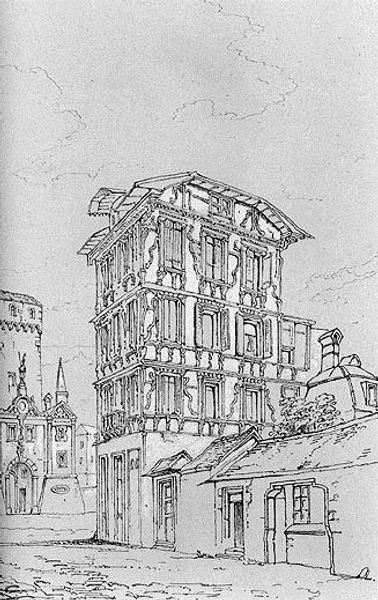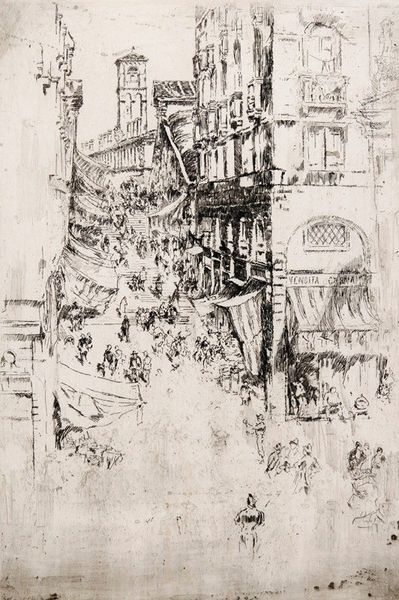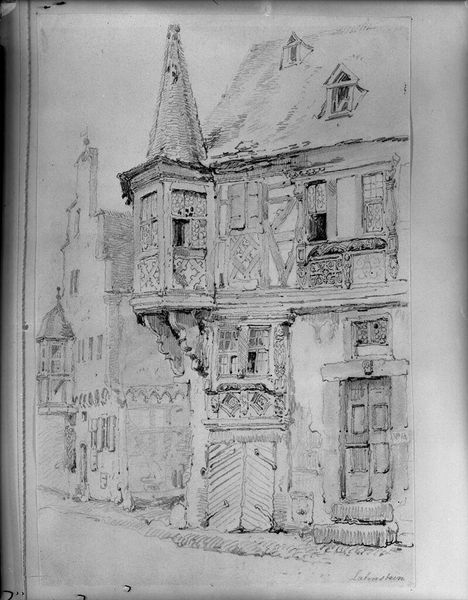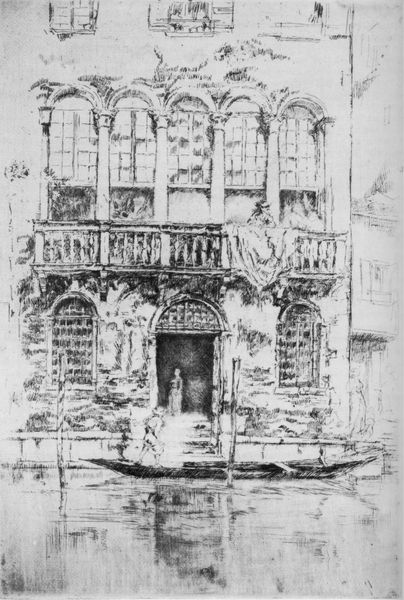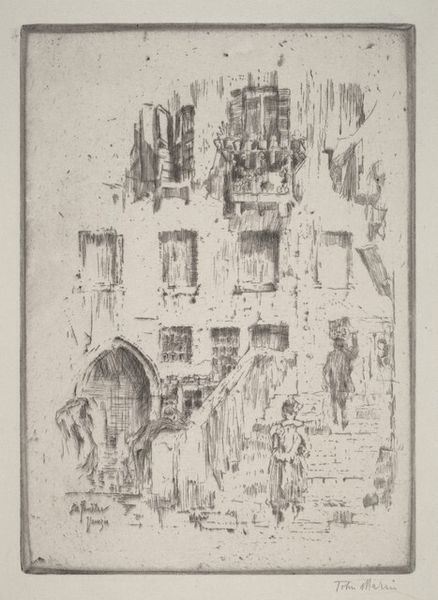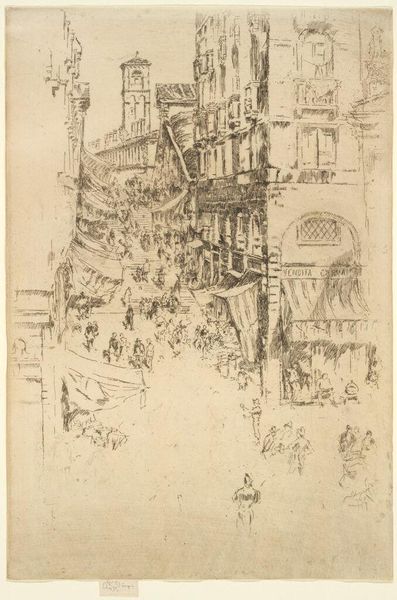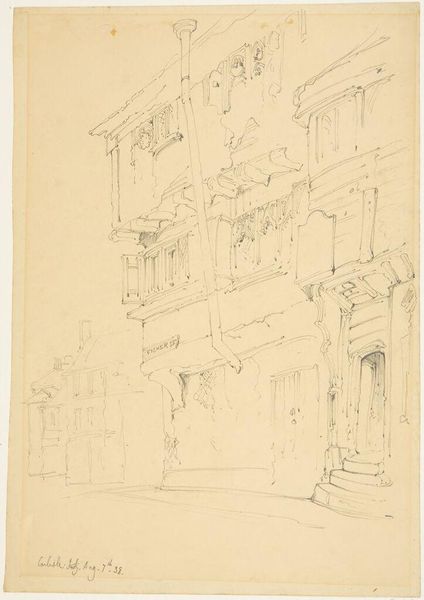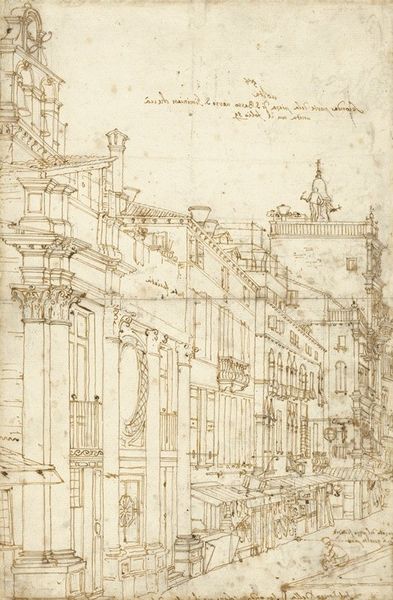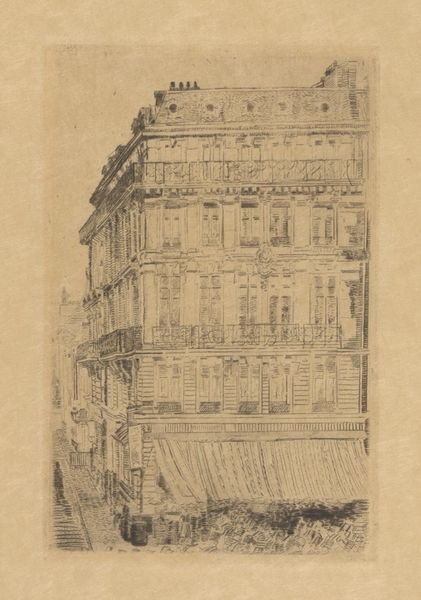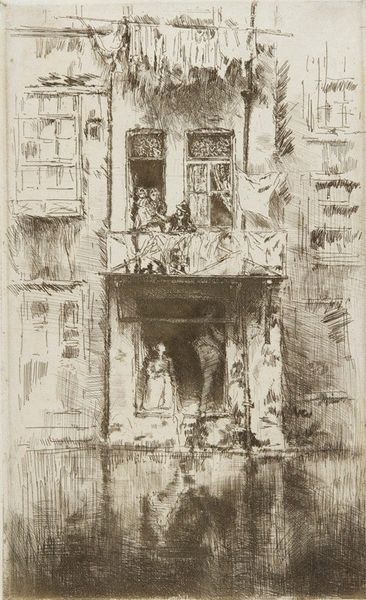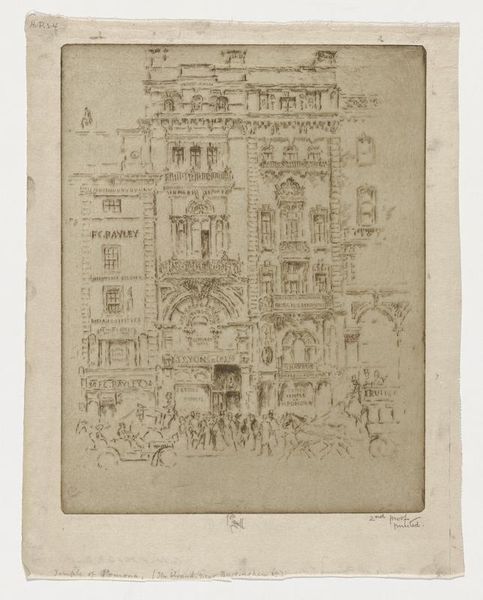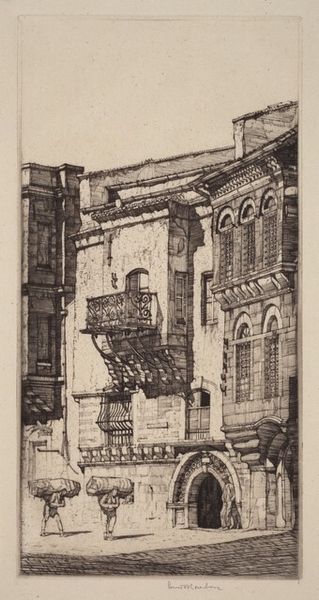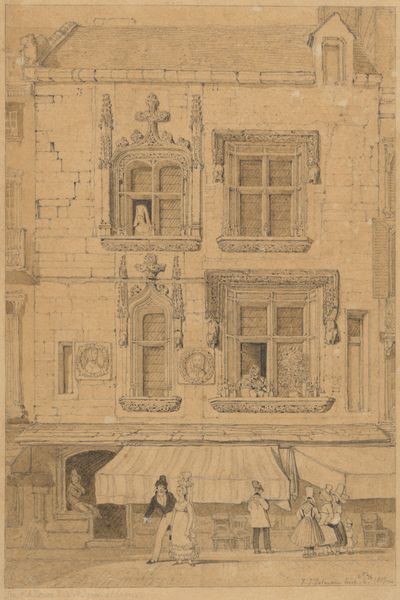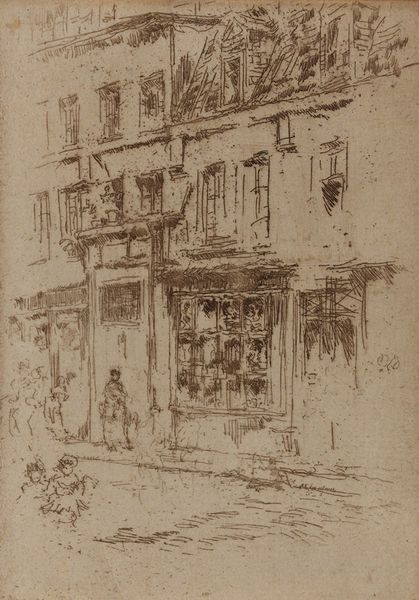
drawing, paper, ink
#
drawing
#
paper
#
ink
#
line
#
cityscape
#
modernism
#
realism
Dimensions: 13.9 x 21.9 cm
Copyright: Public domain
Editor: This is "Palaces, Brussels" by James Abbott McNeill Whistler, made in 1887. It’s an ink drawing on paper and I am really drawn to its loose lines that still suggest such grandeur. What do you see in this piece? Curator: Well, the subject matter—palaces and Brussels—immediately conjure a symbolic interplay. Palaces themselves are potent symbols of power, authority, and history. The image becomes a memory, echoing through the history of Europe, no? The question becomes what did palaces mean to viewers then, in comparison to what they evoke now. Editor: That's an interesting idea – I never thought about palaces holding different meanings. So how can we approach this evolution of meaning through the visual representation of "Palaces, Brussels"? Curator: Note how Whistler captures this scene not with rigid precision, but with these very free and loose strokes. He uses a suggestive visual language. This city is layered, but with a sense of detachment that suggests that his modern, urban experience stands at a remove from what those buildings and locations once represented. This palace feels very separate from its street-level view. Editor: Ah, I see what you mean! He's not really showing us what a palace is but what it meant at this moment to see the palace. The hustle of commoners versus a symbol of royalty feels right in line with modernity. Curator: Exactly! It invites us to reflect on how the image of authority, in the form of historical locations such as Palaces, evolves within the urban consciousness of a society undergoing intense social and political shifts. What do these emblems hold for us today? Editor: It's really eye-opening to see how such simple lines can convey so much history and societal commentary. I’ll never look at a building the same way.
Comments
No comments
Be the first to comment and join the conversation on the ultimate creative platform.
